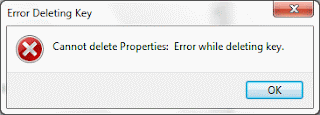 |
| Image Source:- lonelyplanet.com |
Sometimes
you do something and immediately after that realize the mistake. But by the
time you realize it, you also realize that you can hardly do anything about
that. So a sense of guilt encompasses you, a guilt which you can't do anything
about!
Today while coming back to my flat, a poor couple on road, with a kid in
the arms of mother, stopped me and pleaded for money. This is fairly common
scene in Hyderabad, and I immediately ignore and brush past such people. But
this time, the guy called back saying he doesn't want money, even food will be
great. I had almost moved ahead, when I recalled that my this month's quota of
helping people in need was still pending. So like a shrewd businessman I
smelled an opportunity there- an opportunity to fulfill my monthly resolution,
an opportunity to get some instant gratification. I turned back, told the guy
to come with me and I will buy them Dinner. I signaled them to cross the road
with me to the other side, where I knew an affordable restaurant. I went there
asked the person on reception, to pack a dinner for two. I paid for that, took
the packed food, and handed it over to the guy standing outside the restaurant.
That's where I did what I immediately felt guilty about. While handing over the
food packet to the guy, I showed great hurry for leaving, didn't even look
towards the guy, and quickly instructed him to move away from the place (so
that he doesn't cause trouble to the restaurant owner). All this while he was
politely thanking me for the food!! The moment I moved away from them doing all
this, I realized my mistake! I realized my mechanical nature, my inhumane
approach towards the family, my selfish nature to fulfill my resolution without
caring for the intent. But the moment had passed, there was no going back, I
could hardly do anything about that. I was in hurry to reach my flat, but once
I decided to buy them food, I should have done that with a sense of empathy.
That empathy was missing, that humane nature was missing. I did that as if I
was doing a favor to the family, with no emotions, no humane connection with
the family! Particularly, the hurry shown while leaving them, put myself to
shame. I might have helped the family, but the intention of helping was missing.
I immediately felt a pang of guilt, which I felt so helpless about. I just
promised to myself to do better now onwards...
The
incident made me think, why have we become so mechanical and so self-centered
in our life? We are we always in so much of hurry, that we forget there are other humans
around, some of whom may need our compassion and empathy, much more than
anything else! Money seems such an easy way out. Spend some money and suppress
the need of helping with compassion! Where are we headed! Life seems moving so
fast that we don't even want to stop think about the pain and suffering of
others....


















